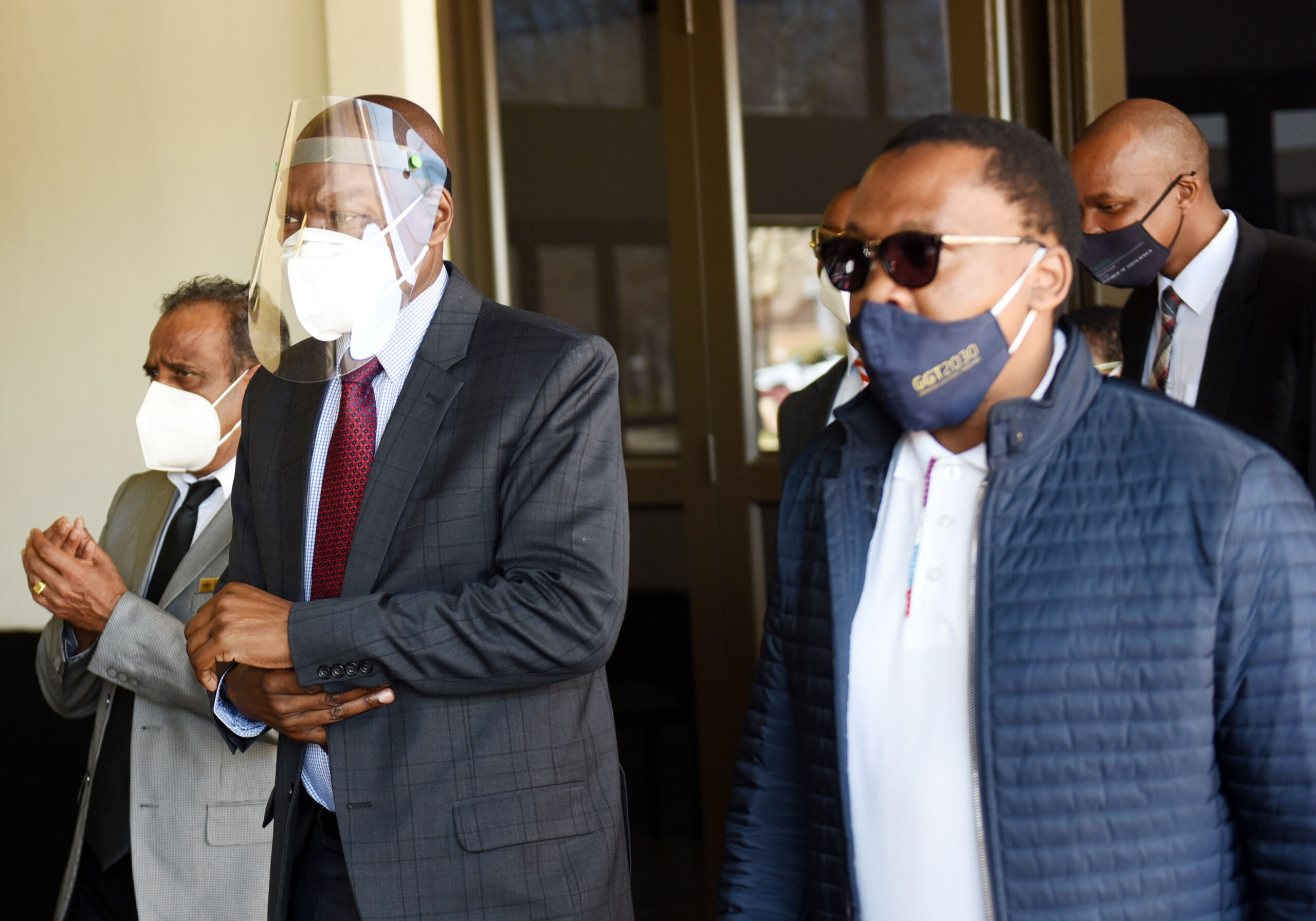Units will serve as an extension of the hospital where patients are screened and tested.

MEC Bandile Masuku and Minister Zweli Mkhize visited Nasrec as part of monitoring state of readiness as COVID-19 cases increase in Gauteng and to support staff working during pandemic, 20 July 2020. Picture:Nigel Sibanda
A company involved in erecting semipermanent field hospitals to act as triage facilities in the Covid-19 pandemic peak is concerned that time is being wasted in provinces like Gauteng and Eastern Cape – two of the worst-affected by the virus – which have not yet awarded contracts for the temporary facilities.
The emergency rapid response infrastructure concept was pioneered in the Western Cape, where it became an imperative when the province was still the country’s Covid-19 epicentre.
The new temporary Covid-19 triage centres and potential field hospitals at Tygerberg Hospital, Victoria Hospital and Paarl Hospital, Ceres, Atlantis, Helderberg, Khayelitsha and Kraaifontein were constructed by temporary infrastructure specialists, Chattels.
The temporary triage units consist of high-quality, weather-proof marquee-type structures, complete with floors, ventilation, extraction units, all plumbing, ablution facilities lighting and access control. The units serve as an extension of the hospital where potential Covid-19 patients can be screened and tested.
There are also beds and oxygen available in cubicles for immediate treatment of more acute cases. Recently during his visit to KwaZulu-Natal, Health Minister Dr Zweli Mkhize tweeted that he expected that every hospital should have a triage centre.
“When we get the increasing numbers, we need to ensure that everything is done to manage with the numbers,” Mkhize said.
Mandy Mulder of Chattels said this was the most viable solution to help meet the escalating need brought by the surge.
“The sampling booths in the tent have special systems for rapid air changing to ensure infected patients don’t spread the virus.”
Some saw this as potential way to reduce spending as there would be no need to hire hotels or other private accommodations for Covid-19 patients that public hospitals could not initially keep, due to a shortage of bed space, at state hospitals. The idea was also borne out by the fact that many state facilities had begun to turn away Covid-19 sufferers whose cases were not serious, to encourage them to recuperate at home.
A few provinces had field hospitals but that’s nowhere near the capacity needed to carry the overload of infection cases expected. Many private facilities were so full that they had to refer cases to public hospitals, especially in the Eastern Cape.
“The only way forward is to supply semipermanent triage centres linked to existing hospitals. What will work is rapid response infrastructure that is flexible in design and quick to build,” Mulder said.
Mulder said that while Chattels and Profica have tendered on constructing field hospitals in other provinces, mostly in the Eastern Cape and Gauteng, contracts have not yet been awarded.
“We’re losing time and already the other provinces are too late to do anything on the scale that the Western Cape has, despite weeks of lockdown. We need to move fast and ensure a quality set-up.”
Jaco Nel of Profica said: “Dramatic healthcare capacity expansion is needed and the pressure is on to find ways to expand and upgrade both temporary and permanent infrastructure in time. We’re ready to give our medical staff at the front lines the best possible environment as they fight the battle against the pandemic.”
– ericn@citizen.co.za
For more news your way, download The Citizen’s app for iOS and Android.
Download our app




